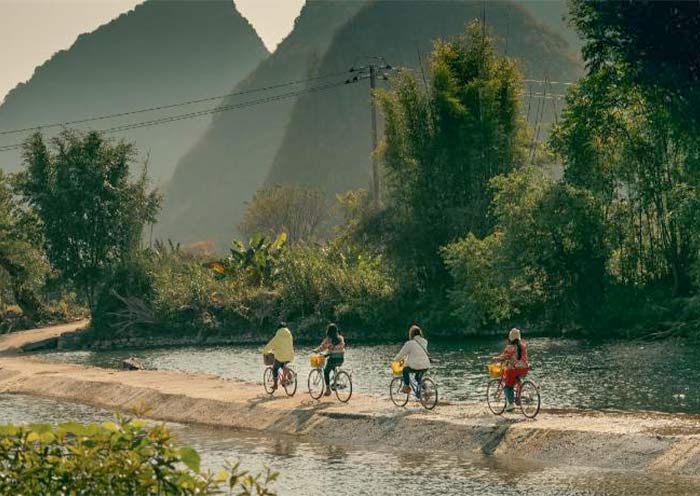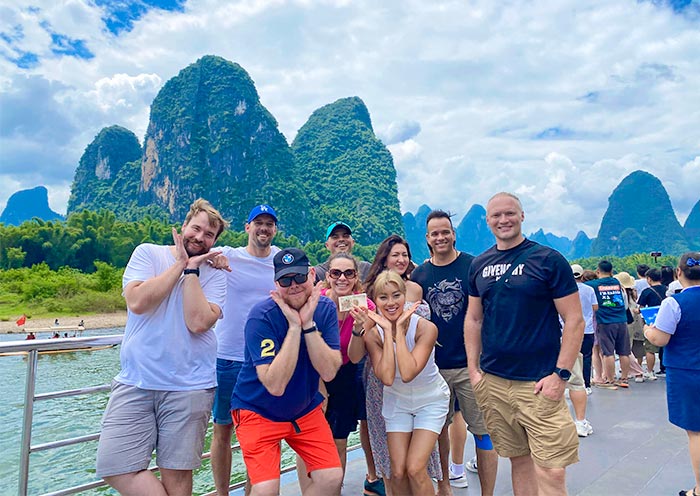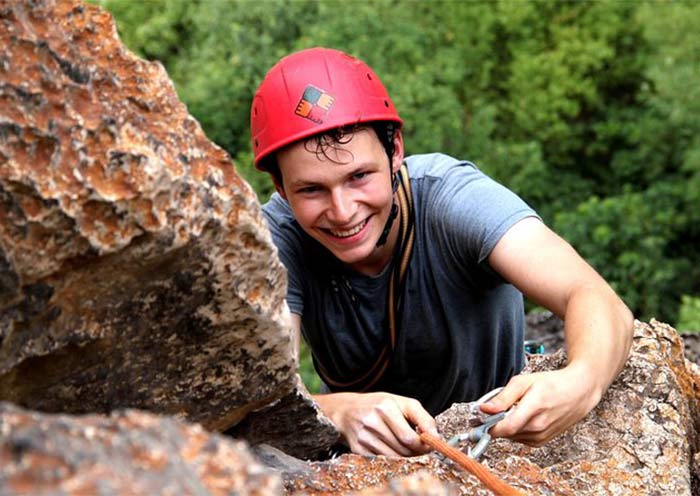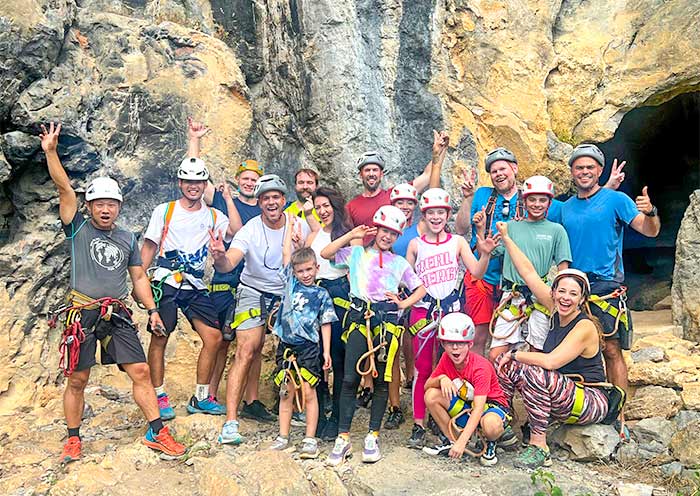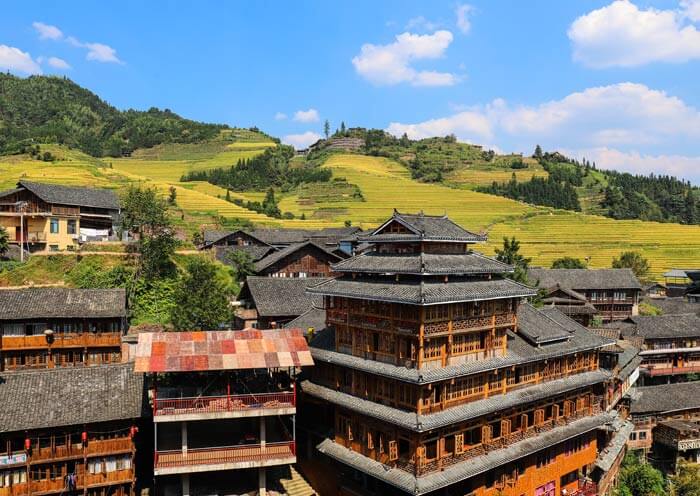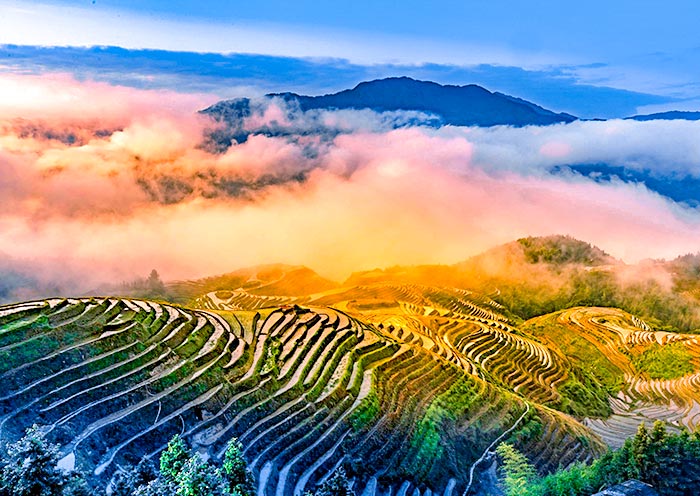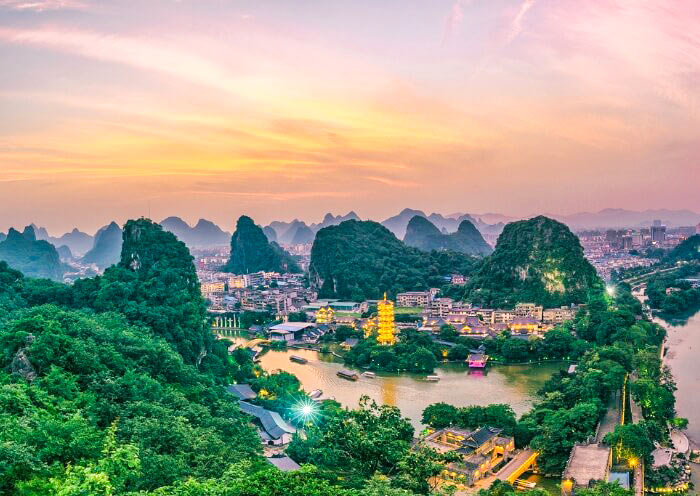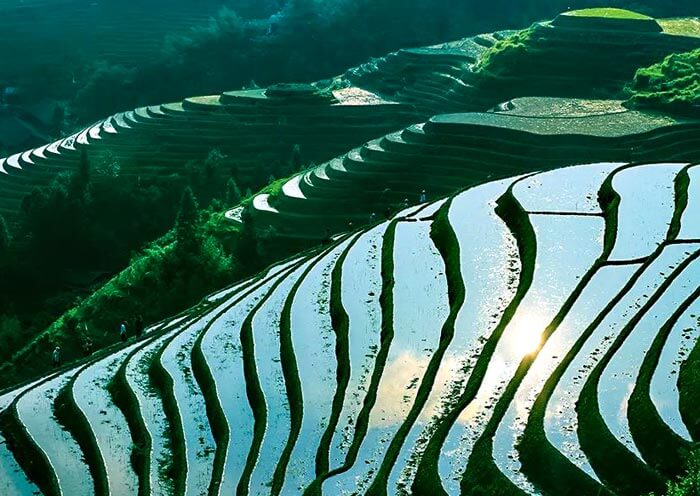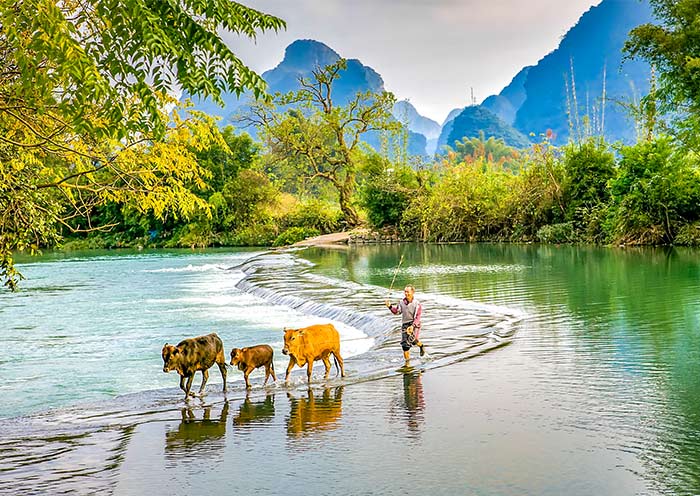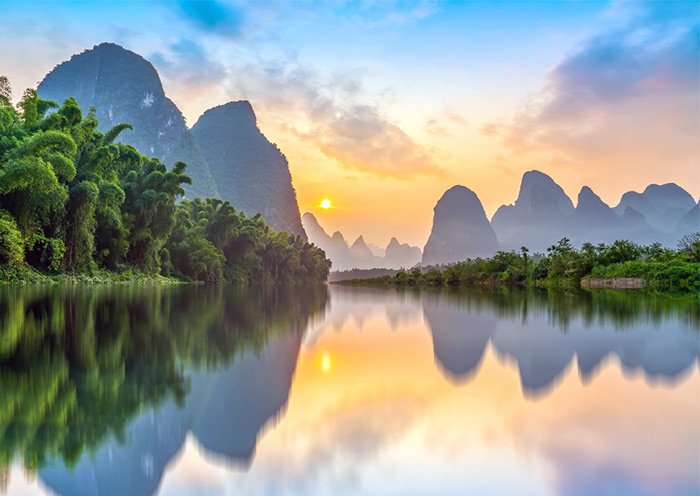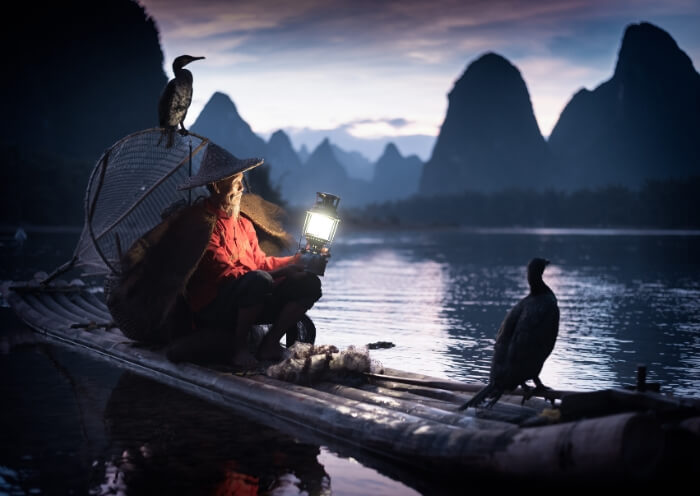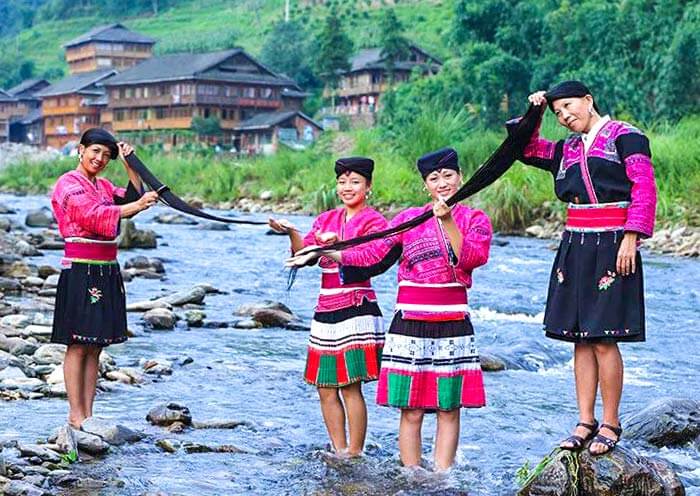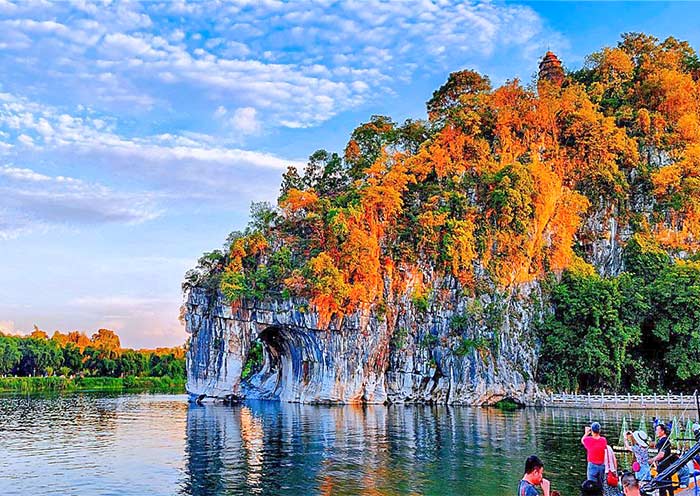Yes, you can add Minority Festivals to your Longji Rice Terraces tour. The Zhuang and Yao ethnic minority groups in the area celebrate various festivals throughout the year, which can provide a deeper cultural experience during your visit.
Some of the festivals celebrated by the ethnic minority groups include:
1. Long Hair Festival, Huangluo Yao Village
The tradition of Red Yao women keeping long hair here could date back to 1,000 years ago (Song Dynasty, 960-1276). Besides considering long hair as a precious treasure and a symbol of good luck, Yao women also like to wear red clothes, and the Red Yao ethnic group is named after this.
If you happen to visit during the third day of the third month of the Chinese lunar calendar, you can participate in the Long Hair Festival (三月三长发节) and witness the ancient and mysterious Red Yao young women's coming-of-age ceremony (at 17 years old). You will find that unmarried Yao girls cover their long hair with a headscarf and do not easily show it, while married Yao women wear their hair in a bun on top of their heads. The bun is made up of three parts: the hair that falls down from daily grooming (collected and saved over time), the hair that is cut during the coming-of-age ceremony (the only time in their life that they cut their hair), and the long hair that grows on their head (which can hang down to the ground).
2.Shuyang Festival (Rice Transplanting Festival), Ping'an Village
If you happen to visit during Grain in Ear (around 6th June), which is one of the Twenty-Four Solar Terms according to the Chinese lunar calendar, you can participate in the Shuyang Festival (Rice Transplanting Festival 梳秧节) and witness the ancient Field-side Ritual Ceremony (田边祭祀“秧母娘娘”). The Zhuang people believe that good timing in farming leads to good harvests, and the Shuyang Festival is celebrated to determine the optimal time to concentrate their efforts and transplant the rice. During the festival, you may also have the chance to enjoy the Lighting Night View in the Ping'an Rice Terraced Fields, experience the Transplanting Ceremony (rice planting), take part in a tug-of-war in the terraced fields, try fish catching in the terraced fields, enjoy torch shows, and join the bonfire party.
3. Clothes Drying Festival, Dazhai Village
If you come to Dazhai Village during the Clothes Drying Festival (the sixth day of the sixth lunar month,六月六), you will have the opportunity to admire the long-haired Yao women hanging their traditional hand-made red clothes on the balconies. It takes 3 years to complete a set of Yao clothes. Yao costumes have been listed as a national-level intangible cultural heritage due to their exquisite embroidery skills and gorgeous embroidery patterns. Yao women do not need to draw sketches but rely on their experience to embroider flowers, trees, birds, and animals, which represent the Yao people's understanding of nature while expressing their yearning for a good harvest, a prosperous population, and a happy life. During the festival, there are Traditional Wedding Ceremonies, Long Hair Performances, Panhu Worship Activities (Panhu is the deified dog & Yao people's benefactor), Glutinous Rice Cake Making, Torch Night Show, and Bonfire Party for you to learn more about Yao ethnic group and their culture.
By coordinating your visit with these festivals, you can witness traditional performances, participate in cultural activities, and gain a deeper understanding of the local traditions and customs. It's recommended to check the festival dates in advance and plan your visit accordingly to ensure you can witness these vibrant cultural celebrations during your tour of the Longji Rice Terraces.

